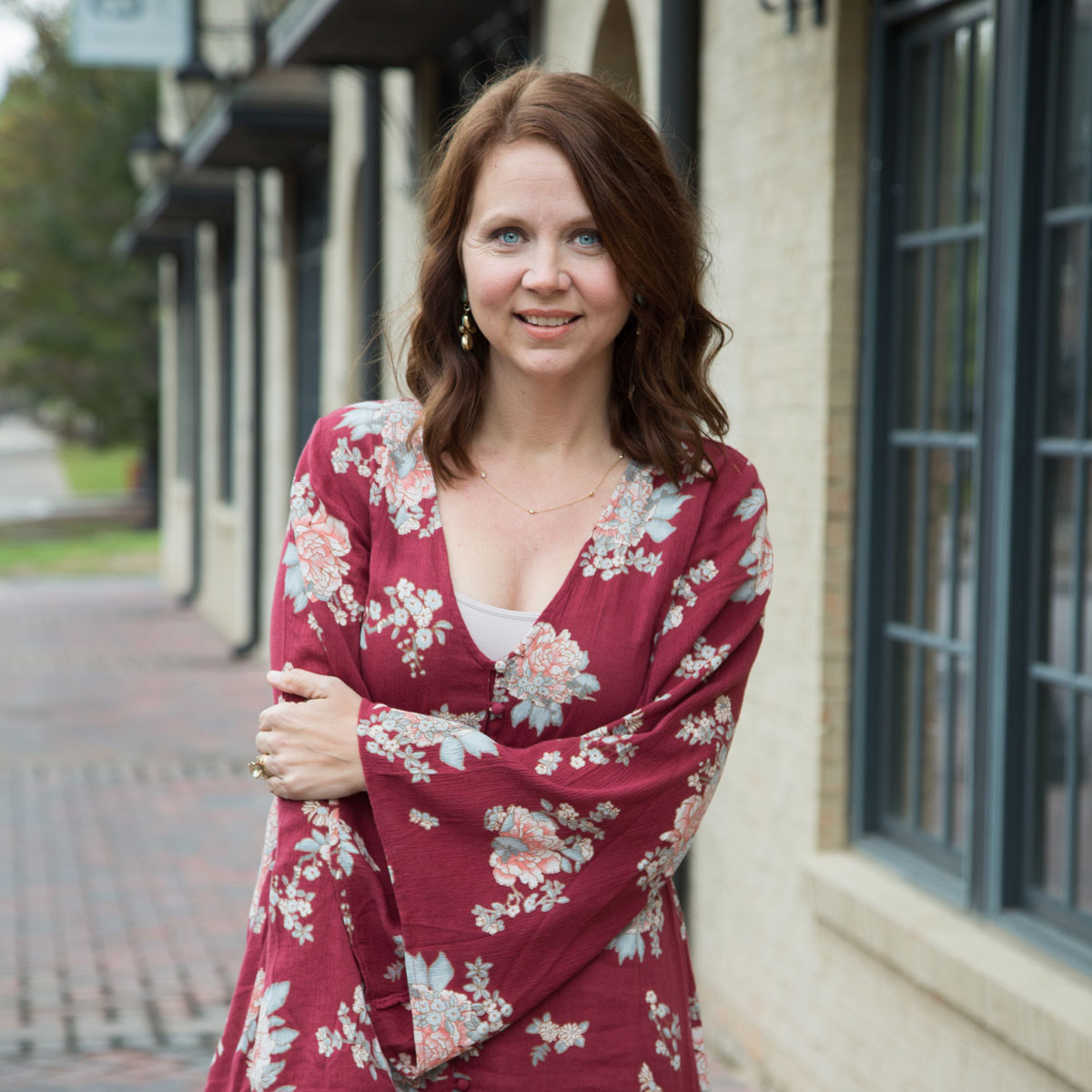Warning: Affiliate links appear in the following post. Although shopping the embedded links won’t cost you any additional dollars, it might mean that I download a few extra audio books this month. Your support of my reading habit is always appreciated!
I’m not sure why I couldn’t read in July, but I had no desire to turn a single page. Josh has been working sixteen hours a day/seven days a week. I haven’t cooked a single time this month (meaning I completely failed at my Whole30). We pulled the plug on our cable, so I’ve been catching up on the DVR before it vanishes into nothing in a few days. I had so many hours of podcasts to catch up on after being at the beach for two weeks last month. I just didn’t have the time to fit reading in and if I’m being honest, I wasn’t interested in thinking. I only read a single book this month. One. I didn’t even start it until July 28th, but once I picked it up I couldn’t bear to put it down.

I’m using the following scale, courtesy of Goodreads, to rate the books I’ve read. I should probably warn you that I like almost everything I read. I love stories and being transported to a new place, so when books provide a plot I can get lost inside, I almost always like it. It’s much harder for me to love or hate something. When you see a single star or five stars, you’ll know I had a strong reaction to something one way or another.
1 star // did not like it
2 star // it was okay
3 star // liked it
4 star // really liked it
5 star // it was amazing

1. SMALL GREAT THINGS BY JODI PICOULT // 5 OUT OF 5 STARS
I received an advanced copy of this book from NetGalley in exchange for my review. All thoughts and opinions are my own.
I wasn’t lying when I told you that The Kitchen House was the best book I have read all year, but Small Great Things was my favorite. When I started reading this book, I had no idea what it was about. I saw Jodi Picoult was the author, I clicked “request” and did a little happy dance when the ARC arrived on my Kindle. I’ve told you before that Picoult is one of my favorite authors and there is only one book of hers that I didn’t fall in love with. I appreciate how she tackles hard topics and forces me to consider situations I haven’t been faced with personally. I’ve had to decide where I would stand if I encountered similar circumstances in my own life and, often, I find myself standing on the side I never expected.
If I cannot do great things, I can do small things in a great way.” — Martin Luther King, Jr.
Small Great Things is a book about race. In a time where racial tensions are flared and reports of hate crimes are always in the media, the timing of this book’s release couldn’t be better. Told from multiple perspectives, this book tells the stories of Ruth, Tuck and Kennedy. Ruth Jefferson is a labor and delivery nurse with twenty years of experience and is passionate about her calling. Tuck Bauer is the father of newborn Davis and has a deep hatred for anyone different than himself. Kennedy McQuarrie is a public defender who requests Ruth’s case because she’s never worked on a “major crimes” case before. Like most of Picoult’s other novels, the transition from character to character is perfectly done – each storyteller has a distinct voice — and hearing such a hard topic covered from each of their positions helps to better orient you and understand their character.
When faced with a patient who refuses her care because of the color of her skin, Ruth is put in an impossibly dangerous situation. When their infant son codes in her presence, Ruth has to decide whether to act against their wishes and save the life of their son or do as she’s been told and deal with the aftermath of her inaction. Small Great Things follows the journey of Ruth’s legal battle and perfectly captures the systematic inequity of the world we live in.
Tuck Bauer is the perfect candidate for a the pro-white movement when he’s recruited. He is angry, alone, and desperately needs something to channel his energy. As much as I hated his character, I felt equal amounts of pity and sympathy for him and the life that led him to embrace those beliefs. I’m not excusing his actions or saying his experiences justified anything he said or did, but it becomes easy to see how a life of poor circumstance can so deeply affect your world view. For Ruth, I felt a strong sense of protection and wanted to yell out on her behalf so many times. She was self-made woman, a hard worker, a proud parent. As a mom, I couldn’t help but resonate with the dreams she had for her son and even though I so desperately wanted her to do whatever it took to get back home to him, I also wanted to cheer her on for deciding it was more important to make a public stand and risk becoming a martyr for something that mattered.
Although beautifully written, I found the book difficult to read. I cringed when hearing the voice of Tuck, a self-proclaimed race warrior, but was even more horrified when faced with my own shortcomings regarding racism. As a person of extreme privilege, I have been so convicted over the past year for things I think and say that have no basis in reality. Sure, I’m not outwardly racist, but there are so many things I take for granted and so many things that I accept without really thinking about how they would affect me if I were born into a different body. Hearing the comments of “white people” from Ruth’s perspective, seeing how Disney characters are displayed on screen and watching her son shoved on the ground and handcuffed? Heartbreaking in a way I can’t even imagine.
The loneliest creature on Earth is a whale that has spent more than twenty years calling out for a mate… but whose voice is so different from those of other whales that none of them ever respond.”
One of the passages that gutted me was after all of the testimony had been offered and Ruth says to her attorney, “Did you ever think our misfortune is directly related to your good fortune? Maybe the house your parents bought was on the market because the sellers didn’t want my mama in the neighborhood. Maybe the good grades that eventually led you to law school were possible because your mama didn’t have to work eighteen hours a day, and was there to read to you at night, or make sure you did your homework? How often do you remind yourself how lucky you are that you own your house, because you were able to build up equity through generations in a way families of color can’t? How often do you open your mouth at work and think how awesome it is that no one’s thinking you’re speaking for everyone with the same skin color you have? How hard is it for you to find a greeting card for your baby’s birthday with a picture of a child that has the same color skin as her? How many times have you seen a painting of Jesus that looks like you?” I cannot possibly understand what it’s like to live in a world where nothing and no one looks like me.
Just like in her other novels, I sat on pins and needles waiting for the twisty knife to come at the end. You know the one — when everything you thought you knew comes unravelled and the characters have to look at themselves in the mirror and decide if they even believe what they thought they did. When Picoult delivers that final blow, I sat speechless. I cried for everything that could have been, I laughed at the irony of how these stories were entwined, I breathed a sigh of relief for what I saw coming. She has a gift for tying up a novel with a pretty little bow, while not making it feel too sweet or too perfect or too trite.
How many exceptions do there have to be before you start to realize that maybe the truths you’ve been told aren’t actually true?”
The first thought I had when I finished the book was to see if there were any negative reviews. I immediately wondered how the book would be received. Then I thumbed through the author’s note at the end of the book and she addressed that very issue. Picoult says she fully expects people of color to challenge her for choosing a topic that doesn’t belong to her and for white people to be angry for calling them out on their racism. She remarked that she wrote the book because it needed to be written, because “the things that make us the most uncomfortable are the things that teach us what we all need to know.” The book isn’t perfect and it won’t solve race relations in this country, but I hope for every other middle class, white mother looking to escape between the pages of a book, they will find themselves challenged and will respond by evaluating what they think they believe in contrast with how they actually live.
Small Great Things will be available in hardback, kindle and audio versions on October 11, 2016. All quotes are based on the ARC text and may be modified in the final published version. Thank you to NetGalley and Ballantine Books for an advanced copy in exchange for my review.






